Parenting is full of surprises. Some parents think they’re signing up for cuddles, finger paints, and the occasional tantrum in the cereal aisle, but sometimes, they end up living with a tiny version of The Hulk.
That’s exactly what today’s Original Poster (OP) has been facing with her almost-4-year-old son. His behavior at the nursery and at home has escalated from typical preschool chaos to full-on meltdowns that leave rooms upside down, staff injured, and siblings soaked, quite literally. And while his affectionate side still shines through, she was left puzzled.
More info: Mumsnet
Parenting is often described as the most rewarding job in the world, but also the most demanding one
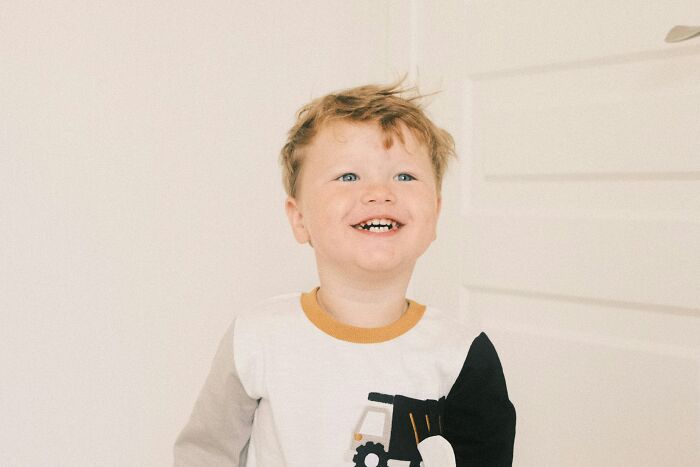
Image credits: Demid Druz / Unsplash (not the actual photo)
The author’s son began displaying extreme behavior both at nursery and at home, including table-flipping, hitting, spitting, and meltdowns
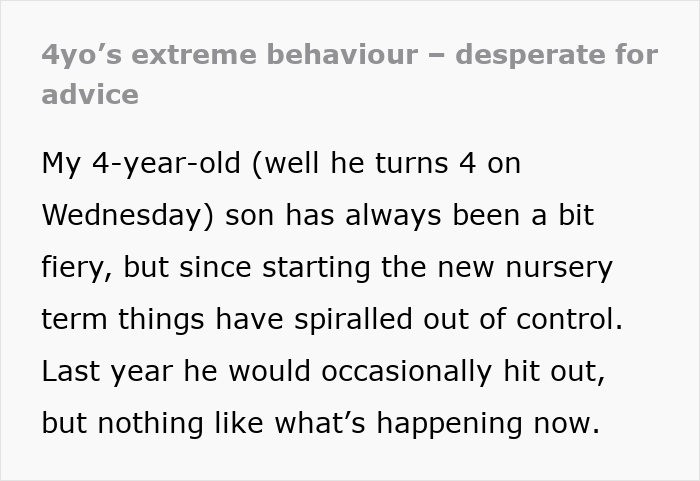
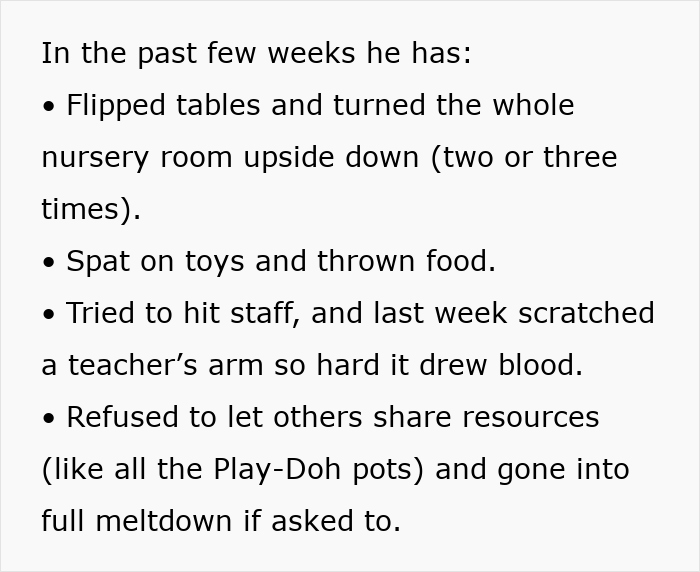
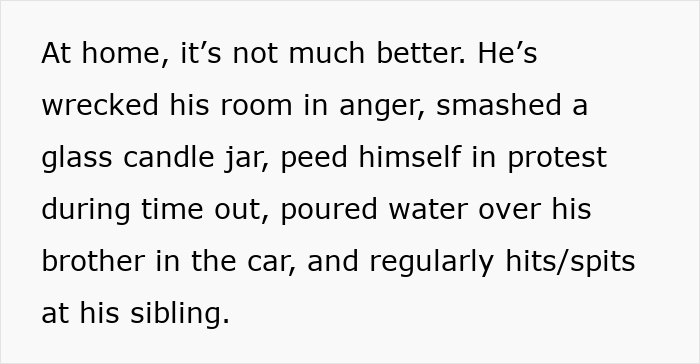

Image credits: MilesJonesy
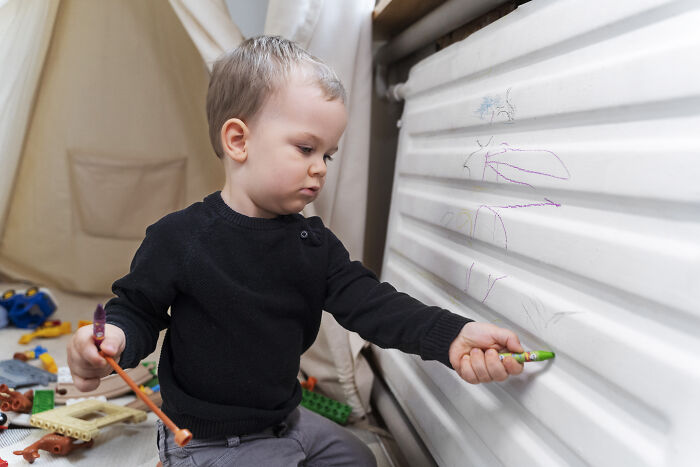
Image credits: Freepik / Freepik (not the actual photo)
Traditional disciplinary measures such as timeouts, confiscating toys, and withdrawing attention proved ineffective and sometimes backfired, escalating the behavior further


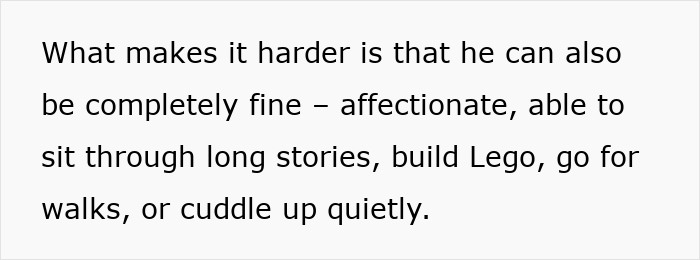
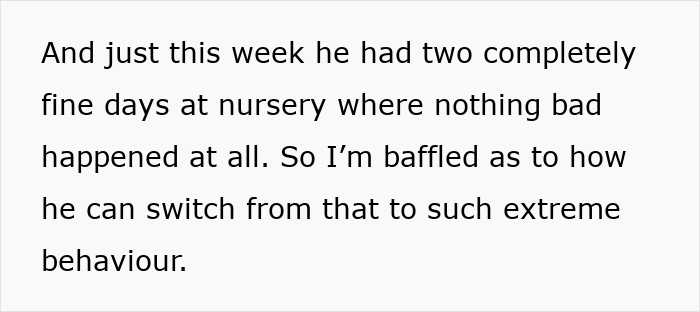

Image credits: MilesJonesy

Image credits: Gabe Pierce / Unsplash (not the actual photo)
Despite these challenges, her son also shows calm, affectionate behavior, enjoying activities like Lego, walks, and storytime, creating unpredictability for the parents

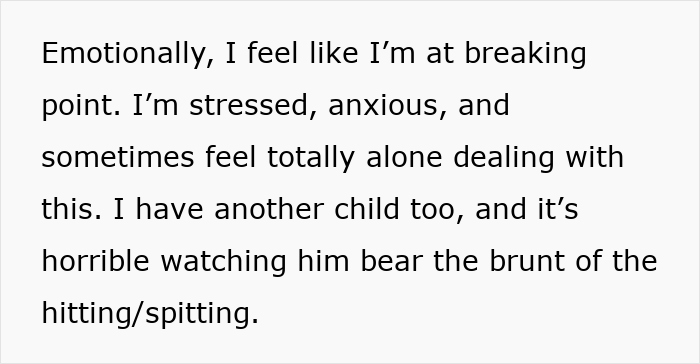
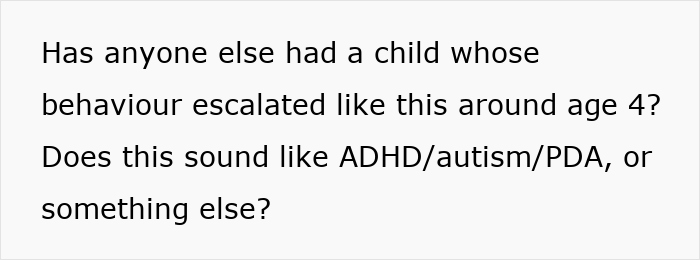


Image credits: MilesJonesy

Image credits: EyeEm / Freepik (not the actual photo)
Nursery staff have made referrals for speech, language, and neurodevelopmental assessments, but long waiting lists have left her seeking alternative strategies
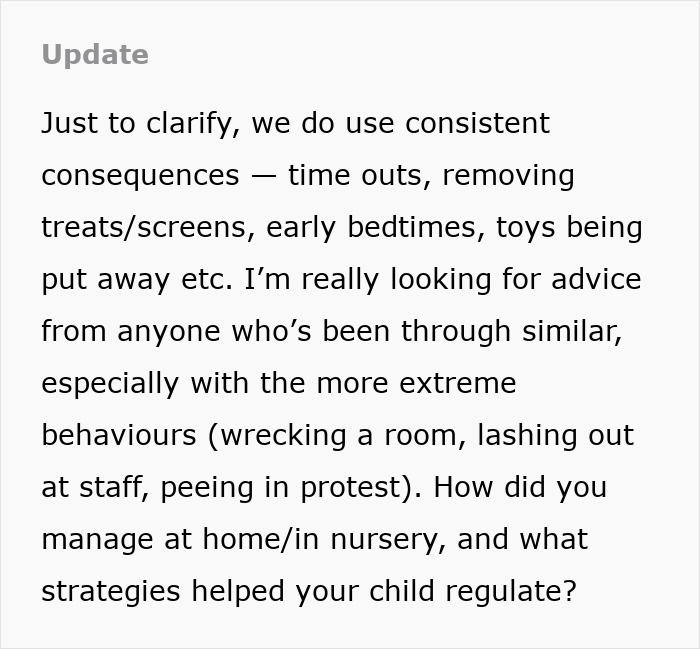
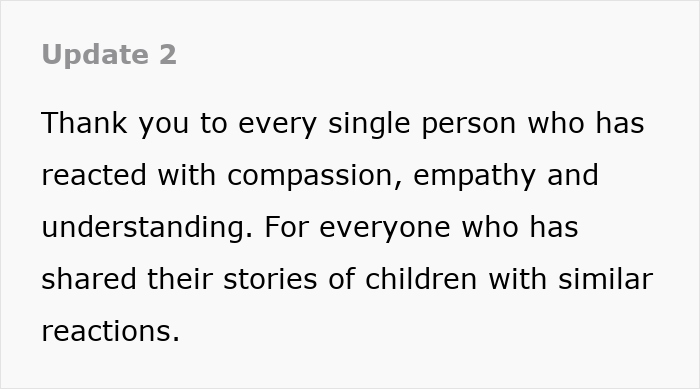
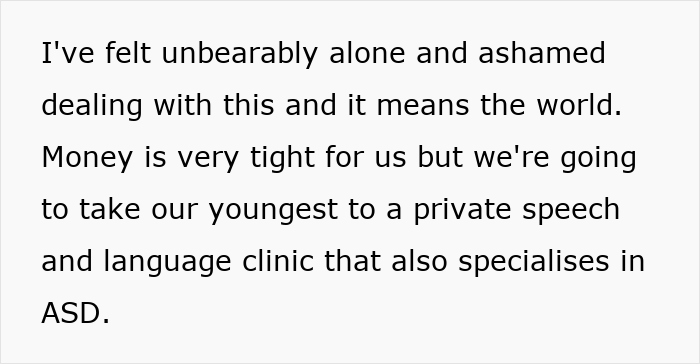
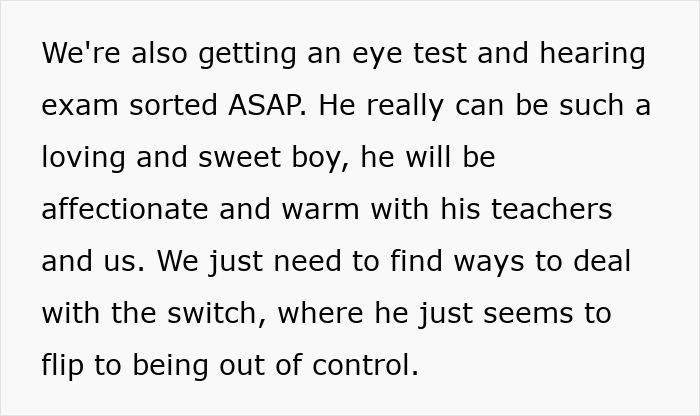
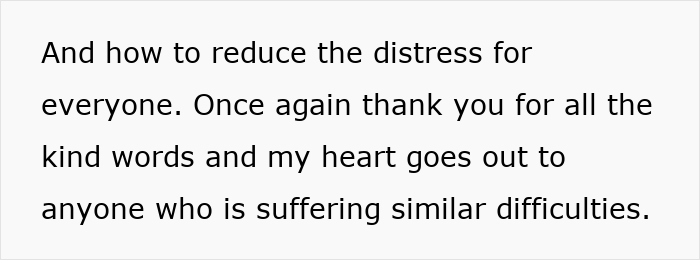
Image credits: MilesJonesy
In an update, the author mentioned that her son would indeed be taking some tests, however, she just needed advice on how to deal with the outbursts
It all started with occasional outbursts, but since beginning a new nursery term, the OP’s son has had a fiery streak that has kicked into overdrive. We’re talking flipped tables, spitting, hitting, scratching, and meltdowns that feel impossible to contain.
At home, things weren’t much calmer. The OP mentioned her son would smash items, clash with his sibling, wreck his room, and even pee on himself in protest. She had tried it all though, from time outs, screen bans, toy confiscation, to even withdrawing attention. However, nothing seemed to stick.
Instead, punishments often backfired, leading to more defiance or even new ways of acting out. However, there was an unpredictability that added stress to her. She noted that some days, her son was perfectly calm and cooperative, enjoying stories, walks, and cuddles, so this made it even harder for her to know what’s really going on.
The nursery team had already made referrals for speech, language, and neurodevelopmental assessments, but the waiting list can stretch up to two years. Now, she’s left asking the internet for strategies on how to keep everyone at home safe on a daily basis.

Image credits: zinkevych / Freepik (not the actual photo)
AutPlay Therapy explains that neurodivergent young children often display a range of behavioral signs which can include difficulties with social interaction, sensory sensitivities, difficulty with emotional regulation resulting in meltdowns, aggression, or withdrawal.
Building on this, Keywell adds that punitive strategies therefore do not work for neurodivergent children because they fail to consider the neurological differences driving their behavior. Many of these children respond differently to conventional rewards or punishments compared with neurotypical peers.
According to Emora Health, supporting neurodivergent children involves reinforcing positive behaviors while minimizing attention to minor misbehaviors to reduce conflict, establishing routines and clear expectations helps children feel secure and navigate transitions more easily.
They also emphasize teaching emotional regulation and social skills in one-on-one or small group settings to support overall development. In the context of the story, where traditional sanctions have failed and the child often becomes overwhelmed, these strategies highlight a more supportive way forward that focuses on understanding needs rather than simply managing behaviors.
Netizens suggested that the nursery may not be the right environment and recommended considering alternatives, highlighting the need to move away from strict sanctions, since they appear ineffective. Some also suggested that the son’s reactions may be linked to neurodivergence.
If you were in the OP’s shoes, how might you handle the balance between keeping siblings safe and supporting the child in crisis? We would love to know your thoughts!
Netizens were empathetic towards the author, but also emphasized that her son’s behavior is a sign he is struggling rather than misbehaving

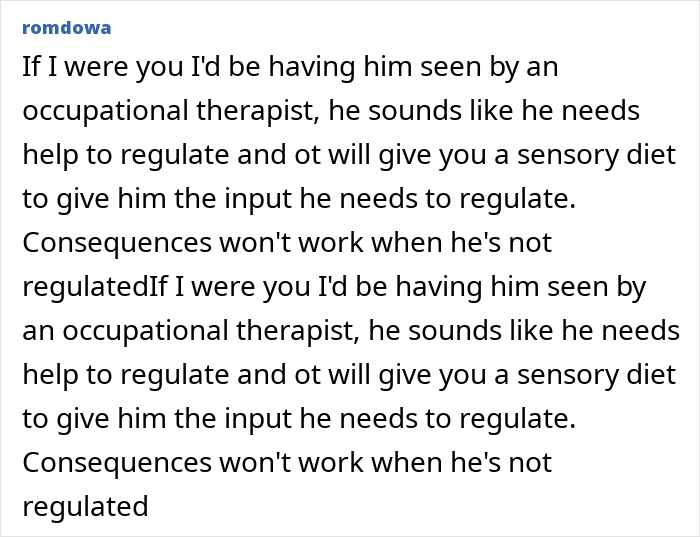
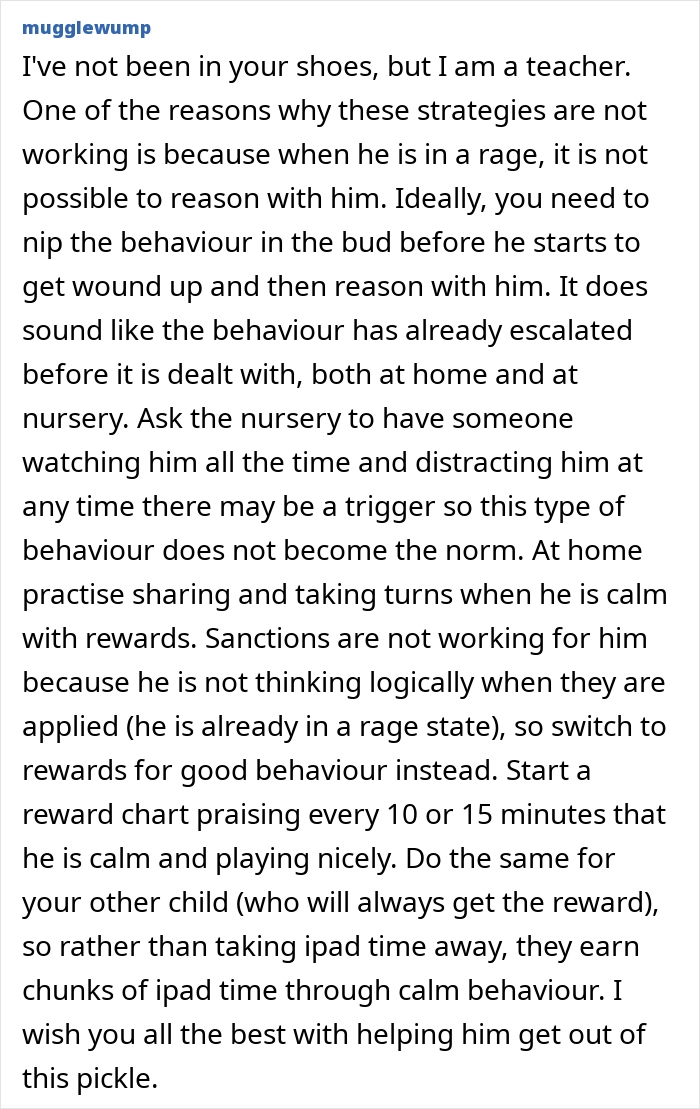

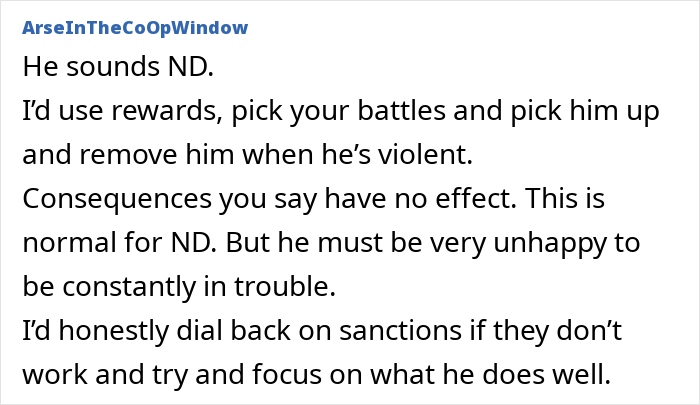
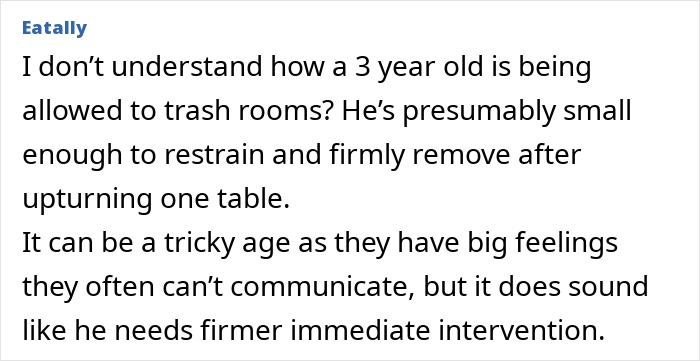
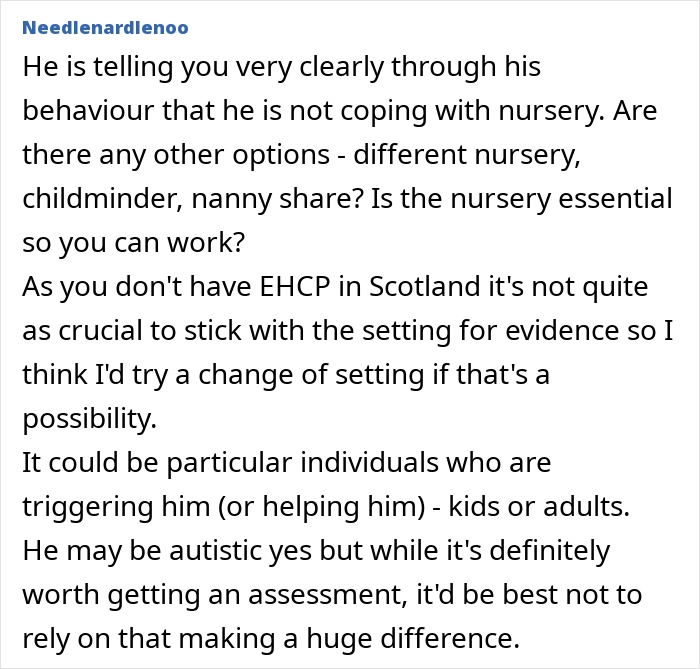
 Follow Us
Follow Us





